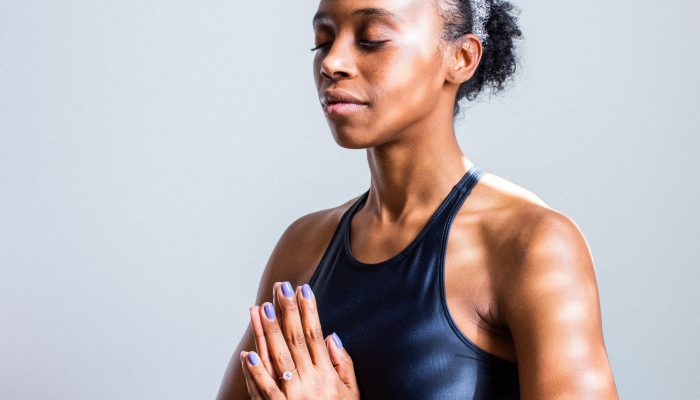Mental preparation before competition is often overlooked or minimized by athletes and their coaches.
As a result of a lack of mental preparation, some athletes become so nervous and tense before competition that they literally feel weak and tired before stepping onto the field, court, running track or pool deck.
This can lead to underachievement and poor performance in the early minutes of competition.
Developing a pre-competition routine with athletes will help them live up to their potential and cope with the normal stresses of athletic competition. This strategy aligns with the World Health Organization definition of mental health as “a state of well-being and the ability to work productively.”
Here are some strategies to help you mentally prepare for competition.
Prior to the start of the season…
…take a few days to create a list of your strengths; your best qualities and abilities. Laminate the list and put it in your locker or equipment bag. Read it before every competition to boost your confidence by reminding yourself of all the reasons you can be successful.
Create a pre-game mental warmup routine
BEFORE THE GAME: On your way to the locker room or to the bus for an away game, change your focus from student to athlete. Focus only on your role as an athlete. The reverse should take place when you’re on your way to class.
ONE HOUR BEFORE COMPETITION: shut down your social media to block out distractions. It’s fine if you use your phone to listen to music to relax, but be careful, your phone can become a distraction if you’re using it for other things. At a minimum turn off notifications.
Don’t bring big goals like winning a state title into competition.
This can lead to focusing on outcome, not doing your Job. The goal of winning a game or match is a byproduct of your efforts. It’s your effort that you should focus on during competition. Use your goals to motivate you in the off-season, in the weight room or in practice but not during competition.
Focus on execution. Remember the 3 R’s.
- Recognize when you start to focus on the wrong things.
- Regroup. Clear your mind and get back into the moment with a Sports Breath.
- Refocus on what needs to be done in the moment and let your training take hold.
Manage your pregame stress level
It’s normal and actually a good thing for athletes to feel some level of stress before games. The key is to avoiding getting stressed out, to minimize the anxiety caused by the stress so you can focus your attention on something other than what’s causing your stress.
Finding what works best for you is the key. Try listening to music, light exercise, talking to teammates, drawing, writing, finding a quiet corner to meditate, literally anything that is safe, healthy and makes you feel more relaxed.
Use positive self-talk
Avoid being overly critical of yourself or underestimating your abilities. If you catch yourself saying negative things to yourself like, “I hope I play well today,” try to replace those thoughts with positive self-talk like, “ I will do my best to play well today.”
The power of visualization
Any time before competition is a good time to visualize how you want to perform and execute that day. Visualize yourself:
- Going in for an easy layup
- Fighting for and coming up with a loose ball
- Nailing your routine
- Preventing your opponent from scoring
You don’t have to visualize a perfect performance. Visualizing yourself overcoming mistakes during competition or getting a little rattled playing in front of a hostile crowd can help you build a coping response to deal with the emotional ups and downs of competition.
The key is to learn to focus on things you can control. Not the weather, not your opponent’s record, not the officials or the need to be perfect.
Perfection is an aspiration not a requirement to be successful.
Live in the moment and allow your training and preparation to take over.
ABOUT THE AUTHOR
Garland Allen is an educator who served as Athletic Director, coach of Basketball, Football and Track & Field, for more than 35 years in public education. Garland spent more than 20 years as a Director of Athletics in Greenwich, CT and Ridgewood, NJ. He also spent eight years as the Director of Wellness for the Ridgewood Public School District. He currently serves on the Advisory Board for the NYU School of Professional Studies Sports and Society program, where he is actively engaged in research and programming on issues related to youth sports.

